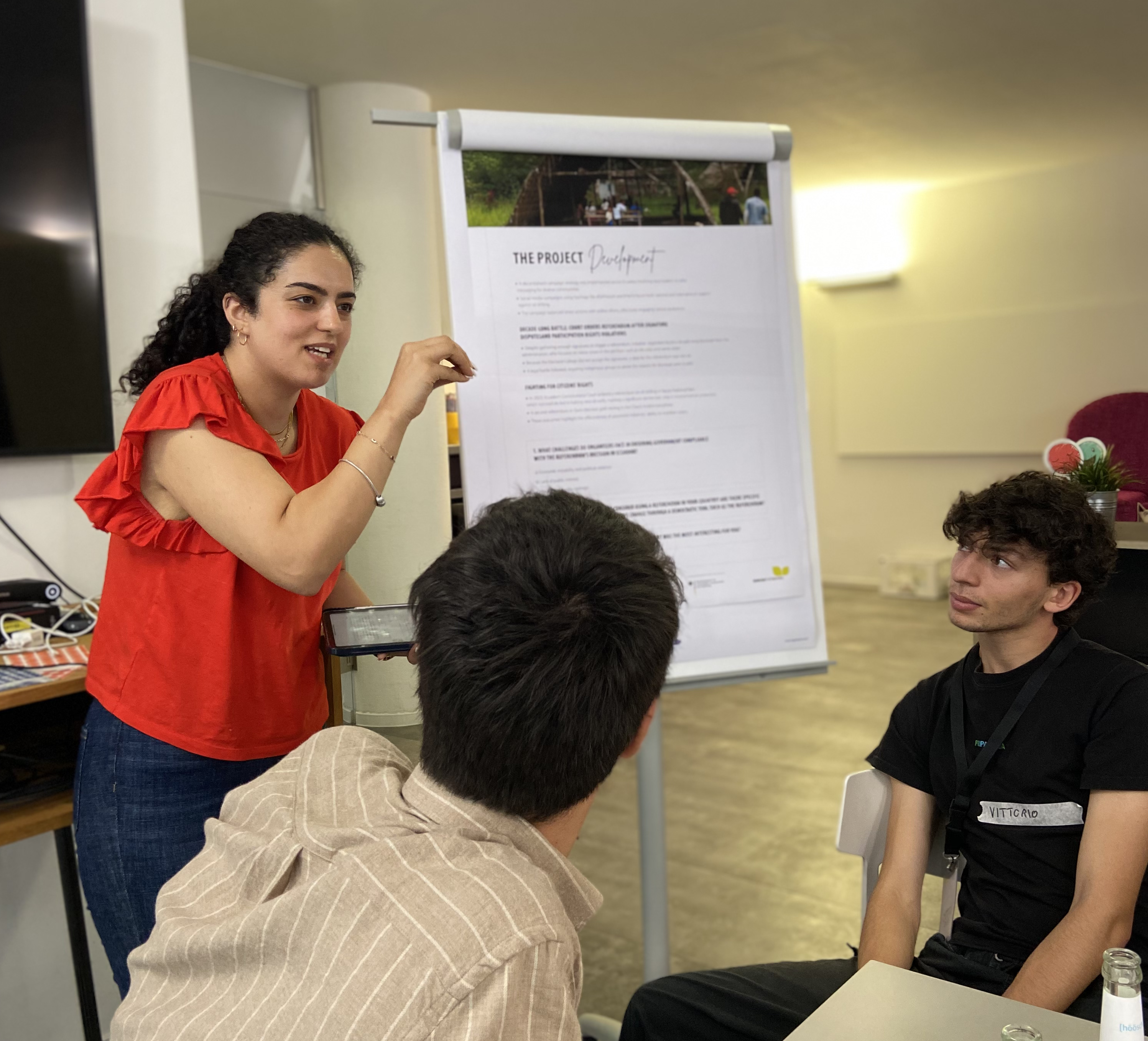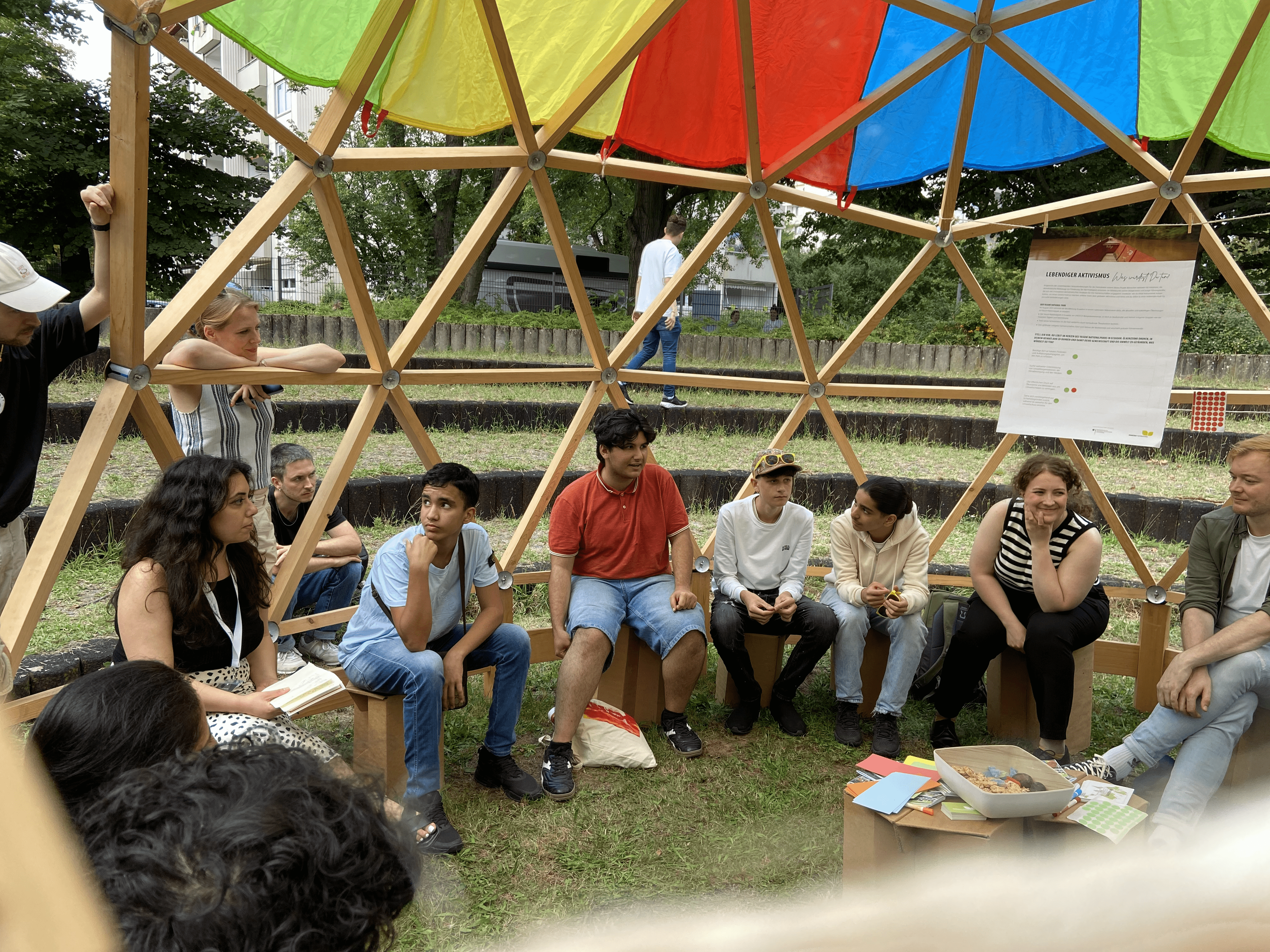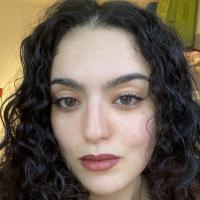As a remote intern at Democracy International since July 2024, I finally had the opportunity to spend a week in with the team in Cologne. During this time, I organised and participated in a workshop where I engaged in discussions with young Europeans about how to get active as a citizen and how a small community in the Amazon rain forest has been a true inspiration in doing so. I was truly amazed by the enthusiasm these young people showed when they learned about the Yasuní Referendum and how strongly they urge to be part of civil society and take action.
In our Life as an Activist workshop, over 20 young Europeans from Italy, Turkey, Ukraine and Germany came together to learn about how to get active as a citizen in democracy. To inspire them, I focused on the case of the Yasuní Referendum in Ecuador, which I believe is incredibly significant. Not only does it involve the democratic tool of the referendum, which I consider one of the most vital tools for democracy because it serves as a direct tool allowing citizens to have a direct say, but it also touches on other important issues like environmental protection and indigenous rights. The referendum in this case is critical because it seeks to protect both the indigenous people in the region and the natural environment, which align with the broader goals of democracy within the Yasuní National Park.
We began the workshop with an introduction to the vast biodiversity of Yasuní National Park. Just imagine how much life is at risk when the potential destruction due to oil exploitation on piece of land the size of 1.38 million soccer fields or 4 times the size of Luxembourg – all in the lush Amazon rain forest. Following this we discussed possible options on how to tackle this threat and learned what the people of the Yasuní did: Initiating a referendum in their country.
STEP 1: A group of citizens collects signatures.
STEP 2: If a certain number of signatures is reached, a referendum is automatically triggered.
STEP 3: The electoral commission checks that all requirements are fulfilled and sets the date for the referendum.
STEP 4: All citizens can vote on the question; the outcome is legally binding.
The workshop participants were truly inspired, offering strategies and sharing their personal perspectives. I realised that by connecting the referendum case to each participant’s imagining as if they were part of the indigenous communities in the Yasuni National Park themselves, they deeply related to the topic with much empathy.
The workshop was highly interactive, with plenty of questions asked after each explanation, allowing the participants to reflect and engage fully. This approach made the session lively and exciting rather than dull.
After the workshop, I felt more at ease, realizing that when I am truly passionate about something, I can fully engage and share my enthusiasm. It is not always easy to see immediate success working in an NGO focused on democracy, but this experience reminded me that even small steps can change things to the better.

Two days later, we participated in the Democracy Festival “Turn Up in CGN”, where we set up the Democracy Dome – engaging again with young citizens and showcasing the Yasuní Referendum as an example on how to get active.
I felt a real connection with the team during this process, as everyone contributed to building it. It gave me a sense of belonging to this friendly environment. People started coming to our dome, and even though it was challenging to get people interested in a referendum at a festival, we succeeded. I believe the way you communicate can truly make a difference, and I realized I have the ability to speak and persuade. People listened and were not bored.
In both workshops, participants learned about democracy and engaged with individuals passionate about utilizing democratic tools, with a special focus on the referendum in Ecuador. Their enthusiasm stemmed from their awareness that they represent the next generation.
My experience in Cologne was incredible. It boosted my self-esteem, and the team, whom I worked closely with, were incredibly supportive. They gave me the confidence and trust to speak up, showing me that I could do it! I truly believe that the environment you are in plays a huge role in your work, and I was fortunate to be part of such a positive one. Since I have been studying for my master’s degree in international relations in Budapest for a year now, I have wanted to advocate and speak out for democracy, but it has been challenging since the focus is more on the academic and theoretical side. Applying what I learned in practice was the best part. I rediscovered my skills and gained the motivation to keep going and learn more. I am deeply grateful to Democracy International for giving me this incredible opportunity and for the boost it provided.




